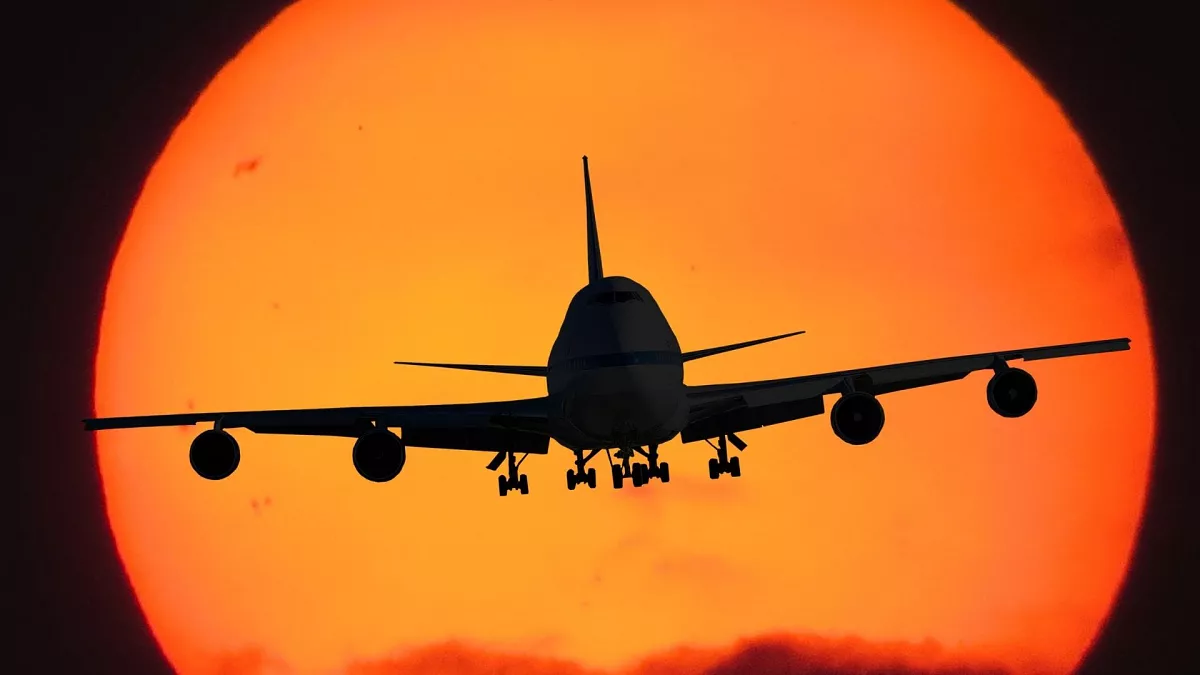US start-up Aerolane is exploring the secret to airborne surfing, a technique already mastered by geese to make these birds efficiently surf on air currents generated by their formation
Todd Graetz hopes to apply that idea at a Texas airstrip to upend the air cargo industry.
With modified planes hauled into the air by another aircraft, Aerolane has been imitating the techniques used by migratory birds.
Cameras mounted in the towed aircraft could record air vortices that a glider can use to stay in the air thanks to smoke emitted from the leading plane.
Their most recent test aircraft has a terrible glide quality and is called the “flying piano.“
It glides along with its twin engines idling for electrical power, its propellers turning just for aerodynamics.
The tension in the towing line has been measured in other tests.
They saw a sign that the glider was riding the currents created by the aircraft in front of it when the cable became slack.
All of this data will be fed into a program by Aerolane, which will steer an uncrewed cargo plane over wakes and turbulence to take advantage of the opportunity to glide great distances without fuel.
An aircraft carrying cargo might tow one or more of these cargo planes to their destination, where they would land on their own.
The engines of the towing aircraft would be the only source of fuel expenses.
Air currents, like a truck towing a trailer, should handle much of the hard lifting in this scenario. Mr. Graetz describes this as “a combination of surfing and gliding.”
Airbus had the same thought and tried the method in 2021 with two A350 aircraft traveling 3 km (1.9 miles) apart over the Atlantic.
To lower fuel consumption and CO2 emissions, one aircraft in the experiment could get an uplift from the lead A350’s wake despite not having a tow line connecting it to the other aircraft.

With the belief that “there has to be a better way to get more out of existing aircraft,” 12-year pilot Mr. Graetz and drone delivery project veteran Gur Kimchi established Airplane.

Pilots with experience have expressed disapproval of the project. Strict adherence to flight safety regulations is required while operating large gliders in commercial airspace.
For example, the aircraft towing must have the assurance that it can release the tow line at any time during the flight, secure in the knowledge that the glider will automatically descend to a runway without dumping debris on top of nearby residents.
According to Aerolane, a little electric motor that powers a propeller will serve as a safety net for their freight gliders, providing them with enough power to reevaluate in case a landing appears unfavorable or to detour to a nearby area.

Mr. Graetz retorts that Aerolane employs working commercial pilots who are obstinate about the project’s viability.
He continues, “We’ve hired outside advisors to play devil’s advocate.
According to him, large freight companies are open to any idea that lowers their cost per delivery.
Air freight companies must consider not just the expense of fuel but also the shortage of pilots and pollutants from jet engines.
Former RAF helicopter pilot and aviation expert James Earl believes Mr. Graetz might be on to something.
Combining efforts in the skies with slipstreaming can yield benefits. Moreover, any innovation in the freight area is beneficial.
However, he warns that public acceptance of unpowered cargo flights over populated areas is an entirely different matter.
In the event of a significant malfunction by the tow plane, it needs to possess a sufficient glide range to reach a landing location.
It’s another question whether the public can be effectively informed about that.

Authorities in the US, where the Federal Aviation Authority is under pressure following significant issues with Boeing planes, will likely be wary.
In response, Mr. Graetz states that his group has complied with the FAA’s requests thus far. The FAA has never taken many chances. They should handle that.
Fred Lopez worked in flight operations for the massive transportation company UPS for 36 years.
Mr. Lopez acknowledges that when Aerolane initially contacted him, he had severe doubts about cargo gliders.
However, gliders only use as much gasoline as their towing aircraft needs.



